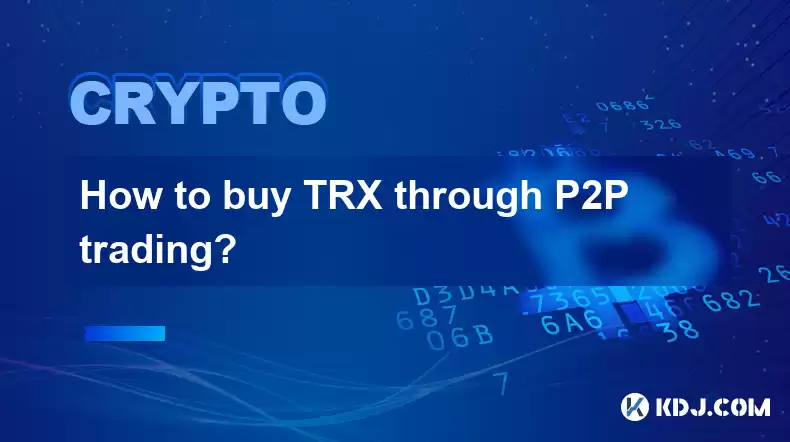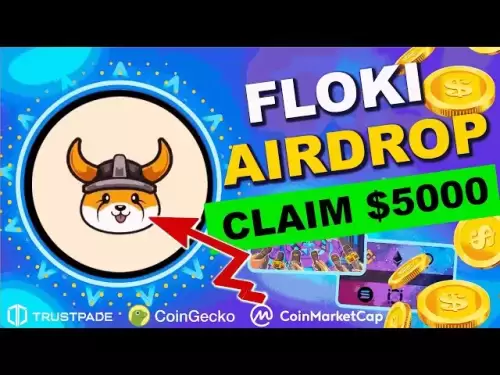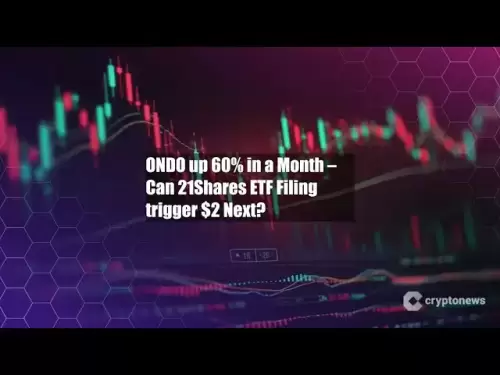-
 Bitcoin
Bitcoin $115100
-2.99% -
 Ethereum
Ethereum $3642
-1.38% -
 XRP
XRP $3.027
-5.51% -
 Tether USDt
Tether USDt $1.000
-0.05% -
 BNB
BNB $763.4
-1.32% -
 Solana
Solana $177.2
-5.42% -
 USDC
USDC $0.9999
-0.02% -
 Dogecoin
Dogecoin $0.2247
-6.47% -
 TRON
TRON $0.3135
0.23% -
 Cardano
Cardano $0.7824
-4.46% -
 Hyperliquid
Hyperliquid $42.53
-0.97% -
 Stellar
Stellar $0.4096
-6.09% -
 Sui
Sui $3.662
-2.61% -
 Chainlink
Chainlink $17.63
-3.57% -
 Bitcoin Cash
Bitcoin Cash $536.3
2.94% -
 Hedera
Hedera $0.2450
0.34% -
 Avalanche
Avalanche $23.23
-3.15% -
 Litecoin
Litecoin $112.2
-1.23% -
 UNUS SED LEO
UNUS SED LEO $8.976
-0.30% -
 Shiba Inu
Shiba Inu $0.00001341
-2.72% -
 Toncoin
Toncoin $3.101
-2.44% -
 Ethena USDe
Ethena USDe $1.001
-0.05% -
 Uniswap
Uniswap $10.08
-1.97% -
 Polkadot
Polkadot $3.938
-2.77% -
 Monero
Monero $323.9
0.87% -
 Dai
Dai $0.9999
-0.02% -
 Bitget Token
Bitget Token $4.481
-1.69% -
 Pepe
Pepe $0.00001199
-5.94% -
 Aave
Aave $288.2
-0.68% -
 Cronos
Cronos $0.1279
0.36%
How to buy TRX through P2P trading?
Buying TRX through P2P trading on platforms like Paxful or Binance P2P can be secure and efficient, offering better rates than centralized exchanges.
Apr 21, 2025 at 11:49 am

Buying TRX (Tron) through P2P (peer-to-peer) trading can be an efficient and secure way to acquire this cryptocurrency. P2P trading allows you to directly exchange your local currency for TRX with another individual, often with more favorable rates than those offered by centralized exchanges. In this article, we will guide you through the process of buying TRX through P2P trading, covering essential steps, safety measures, and tips for a successful transaction.
Choosing a P2P Trading Platform
The first step in buying TRX through P2P trading is to select a reputable P2P trading platform. Some popular platforms include Paxful, LocalBitcoins, and Binance P2P. Each platform has its own features, user base, and fee structure, so it’s important to choose one that best suits your needs.
- Visit the official website of the chosen platform.
- Create an account by providing your email address and setting up a secure password.
- Complete the verification process, which may include submitting identification documents, depending on the platform’s requirements.
Finding a Seller
Once you have set up your account, the next step is to find a seller offering TRX. Most P2P platforms have a search function that allows you to filter sellers based on payment method, location, and price.
- Navigate to the TRX trading section on the platform.
- Use the search filters to find a seller who meets your criteria, such as payment method (e.g., bank transfer, PayPal) and location.
- Review the seller’s profile to check their reputation, transaction history, and feedback from other buyers.
Initiating a Trade
After selecting a seller, you can initiate a trade by following these steps:
- Click on the "Buy" button next to the seller’s offer.
- Enter the amount of TRX you wish to purchase and review the total cost in your local currency.
- Choose your preferred payment method from the options provided by the seller.
- Review the trade terms and ensure you understand the payment instructions and any additional requirements.
Completing the Payment
Once you have initiated the trade, you will need to complete the payment according to the seller’s instructions. It’s crucial to follow these steps carefully to ensure a smooth transaction.
- Follow the payment instructions provided by the seller, which may include transferring funds via bank transfer, PayPal, or another method.
- Take a screenshot or photo of the payment confirmation as proof of payment.
- Upload the payment proof to the P2P platform to notify the seller that the payment has been made.
Releasing the TRX
After the seller confirms receipt of your payment, they will release the TRX to your wallet on the P2P platform. Here’s how to proceed:
- Wait for the seller to confirm the payment and release the TRX to your account.
- Verify that the TRX has been credited to your wallet on the platform.
- Transfer the TRX to your personal wallet if you prefer to store it off the platform for added security.
Ensuring Safety and Security
P2P trading can be safe if you take the right precautions. Here are some tips to ensure a secure transaction:
- Use a secure internet connection and avoid public Wi-Fi when conducting transactions.
- Enable two-factor authentication (2FA) on your P2P trading account to add an extra layer of security.
- Be cautious of sellers with low ratings or no transaction history, as they may be less reliable.
- Never share sensitive information such as your private keys or wallet seed phrases with anyone.
Troubleshooting Common Issues
Sometimes, issues may arise during a P2P trade. Here are some common problems and how to address them:
- Payment not received by the seller: If the seller claims not to have received your payment, double-check the payment details and contact the platform’s support team for assistance.
- Seller not releasing TRX: If the seller does not release the TRX after confirming payment, open a dispute on the platform and provide evidence of the payment.
- Platform technical issues: If you encounter technical issues on the platform, try refreshing the page or contacting customer support for help.
Frequently Asked Questions
Q: Can I buy TRX with cash through P2P trading?
A: Yes, some P2P platforms allow you to buy TRX with cash. You can meet the seller in person to complete the transaction, but be sure to take safety precautions and meet in a public place.
Q: How long does it take to complete a P2P trade for TRX?
A: The duration of a P2P trade can vary depending on the payment method and the responsiveness of the seller. Bank transfers may take a few hours to a few days, while instant payment methods like PayPal can complete the trade within minutes.
Q: Are there any fees associated with P2P trading on these platforms?
A: Yes, most P2P platforms charge a fee for each transaction, typically ranging from 0.5% to 1% of the trade amount. Be sure to check the fee structure of the platform before initiating a trade.
Q: Can I use a P2P platform to sell TRX as well?
A: Yes, P2P platforms like Paxful, LocalBitcoins, and Binance P2P also allow you to sell TRX. The process is similar to buying, but you will need to list your offer and wait for a buyer to initiate a trade.
Disclaimer:info@kdj.com
The information provided is not trading advice. kdj.com does not assume any responsibility for any investments made based on the information provided in this article. Cryptocurrencies are highly volatile and it is highly recommended that you invest with caution after thorough research!
If you believe that the content used on this website infringes your copyright, please contact us immediately (info@kdj.com) and we will delete it promptly.
- Crypto ETFs: Analyzing the 2025 Boom and Beyond
- 2025-07-26 00:30:12
- Bitcoin Swift (BTC3): Last Call for Presale Stage 1!
- 2025-07-25 23:10:12
- Altcoins of the Decade: Unearthing the Top 3 Crypto Titans
- 2025-07-25 23:50:11
- Bitcoin, Presales, and Crypto Buys: What's Hot in the NYC Crypto Scene?
- 2025-07-25 23:50:11
- BlockDAG, LINK, and Uniswap: Navigating the Crypto Landscape with Real-World Utility
- 2025-07-25 23:55:12
- Tyre Legalities and the 20p Coin Test: What Motoring Experts Want You to Know
- 2025-07-25 23:55:12
Related knowledge

What is Chainlink (LINK)?
Jul 22,2025 at 02:14am
Understanding Chainlink (LINK): The Decentralized Oracle NetworkChainlink is a decentralized oracle network designed to bridge the gap between blockch...

What is Avalanche (AVAX)?
Jul 22,2025 at 08:35am
What is Avalanche (AVAX)?Avalanche (AVAX) is a decentralized, open-source blockchain platform designed to support high-performance decentralized appli...

What is Polkadot (DOT)?
Jul 19,2025 at 06:35pm
Understanding the Basics of Polkadot (DOT)Polkadot (DOT) is a multi-chain network protocol designed to enable different blockchains to transfer messag...

What is Litecoin (LTC)?
Jul 23,2025 at 11:35am
Overview of Litecoin (LTC)Litecoin (LTC) is a peer-to-peer cryptocurrency that was created in 2011 by Charlie Lee, a former Google engineer. It is oft...

What is Monero (XMR)?
Jul 21,2025 at 10:07am
What is Monero (XMR)?Monero (XMR) is a decentralized cryptocurrency designed to provide enhanced privacy and anonymity for its users. Unlike Bitcoin a...

How to add indicators to Ethereum chart on TradingView?
Jul 19,2025 at 07:15am
What Is an Ethereum Chart on TradingView?The Ethereum chart on TradingView is a visual representation of the price movement of Ethereum (ETH) over a s...

What is Chainlink (LINK)?
Jul 22,2025 at 02:14am
Understanding Chainlink (LINK): The Decentralized Oracle NetworkChainlink is a decentralized oracle network designed to bridge the gap between blockch...

What is Avalanche (AVAX)?
Jul 22,2025 at 08:35am
What is Avalanche (AVAX)?Avalanche (AVAX) is a decentralized, open-source blockchain platform designed to support high-performance decentralized appli...

What is Polkadot (DOT)?
Jul 19,2025 at 06:35pm
Understanding the Basics of Polkadot (DOT)Polkadot (DOT) is a multi-chain network protocol designed to enable different blockchains to transfer messag...

What is Litecoin (LTC)?
Jul 23,2025 at 11:35am
Overview of Litecoin (LTC)Litecoin (LTC) is a peer-to-peer cryptocurrency that was created in 2011 by Charlie Lee, a former Google engineer. It is oft...

What is Monero (XMR)?
Jul 21,2025 at 10:07am
What is Monero (XMR)?Monero (XMR) is a decentralized cryptocurrency designed to provide enhanced privacy and anonymity for its users. Unlike Bitcoin a...

How to add indicators to Ethereum chart on TradingView?
Jul 19,2025 at 07:15am
What Is an Ethereum Chart on TradingView?The Ethereum chart on TradingView is a visual representation of the price movement of Ethereum (ETH) over a s...
See all articles

























































































